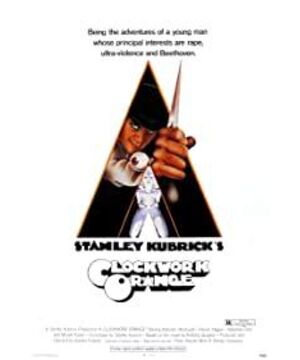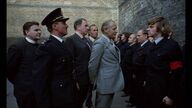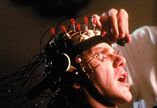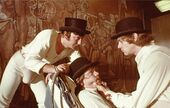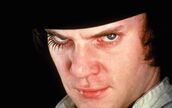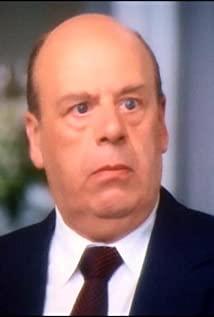Slowness is not necessarily bad. Slowness can force us to let go of the world around us and integrate ourselves into the world of movies. This is very important for understanding the message the author wants to convey through the screen.
Like most young people, Alex has a surplus of libido, doing nothing, robbing the house, and venting his dissatisfaction with society through destruction. A little bit of numbness of the times, when it comes to the individual, it is a huge numbness. The numbness makes Alex not think criminal behavior is immoral, and even take it as pleasure. From this perspective, Alex is closer to himself than those whose personal principles are regulated by the origin of social morality. According to Freud's point of view, regardless of whether the result of libido's release is good or bad, just as far as the release process is concerned, whether it is violence or sex, it can bring pleasure. (Of course, I personally think that when this kind of result is good, then this kind of happiness can be considered a kind of happiness) Alex and their biggest mistake is that they come by raping people who are also raped by the times. Express their resentment towards the times.
Rogers said that the world in the eyes of a carpenter is made of wood. I have read a lot of psychology books, and when I watched this movie, the content of Lenovo psychology was also more.
In order for Alex to "recover"-please pay attention to the term "recovery", which is a pre-supposition, assuming that Alex's anti-social behavior is an unhealthy response-society has adopted numerous methods. Promote its "rehabilitation".
Prisons represent physical punishment and reformation; treatment clinics represent corporal punishment and reformation. Behind both are behaviorist viewpoints, which are nothing more than integrating a kind of pain and behavior through a large number of operating practices, so that people form a sense of fear of the so-called "evil".
Corresponding to this is the priest who is obviously gay in the film. He emphasizes free will-this is actually very ironic, because religion itself is against free will, but he hopes that this lost child can Rely on your own consciousness to make free will choices, to choose the way of God, and to choose repentance. The director unceremoniously ridiculed the idealism of the priest, making Alex a representative of the evil in the Bible, rather than a symbol of good.
The conversations between the priest and Alex in the library, the priest and the minister on the small stage are all classics. Behaviorism does not need motives and choices, as long as the "morality" that meets the needs of the times-instead of waiting for Alex to confess, it is better to transform him into a Christian-this is the social view of the time when behaviorism is rampant, and the same is true of our lives. In education, this kind of superiority of the authority being condescending to transform the civilians is permeated everywhere. This is a kind of subconscious, but it is very clear.
Behaviorism uses disgusting methods to deprive Alex of sexual impulses and violent impulses. When those movie scenes and Beethoven's music are connected, even I feel sick. I personally like classical music very much. I really think the director is willing to "sacrifice"... People always feel sick when watching this film, maybe this is the effect Sartre is pursuing-first learn what nausea is, and then learn to be free What is it.
In the end, the director also mocked psychoanalysis, which is more interesting, especially the way to analyze the subconsciousness of the person using the method of looking at pictures and telling stories, but there really shows that Alex is starting to recover, at least Alex shows There is humor—humor is a great weapon. Freud believes that it is a powerful weapon for subconscious instinct against the powerful superego (whether it is the inner conscience or the moral authority of the external world). With a smile, serious problems are resolved. Alex learned to compromise (lick the sole of the person who insulted him) in the middle of the film, and learned humor at the end of the film. Once he no longer takes this imperfect world so seriously, he is freed from the rift between reality and ideals.
The front and back echoing structure designed by the director is very interesting. Some of the seemingly random designs in the front part are corresponding to the back, which feels very good. (Unfortunately, the revenge of the beaten gangsters is missing, but that is optional.) The writer has the best design for this paragraph, because Alex's behavior is indeed guilty, and he really deserves to be punished. So the director let him be saved first, and then let him be punished. The same is true for the writer. His political ambitions made him "tolerate the humiliation" and pour alcohol to his "enemies", and his bad behavior was also retributed later. Even the little servants of Alex's opening film became the police and received retribution. The director's thought of causality is quite strong.
The last scene is the most energetic, Alex finally lost the ability to move freely, but in exchange for the minister, a representative of the government, to feed him. People give up freedom in exchange for a sense of security. This is a portrayal. But giving up freedom is not so easy. Giving up freedom requires you to know how to choose and how to get the most rewards for what you do without your conscience.
At the end of the film, Alex seems to be clever. He betrayed his conscience and got the greatest reward. Under the flashlight, Alex had the extreme pleasure of getting an orgasm in front of everyone and having sex with beautiful women in the snow. Alex finally learned to enjoy the pleasure when he raped him in the era.
View more about A Clockwork Orange reviews


